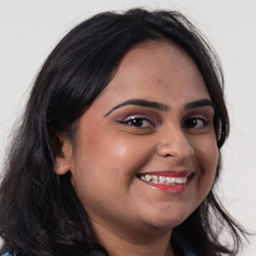MOH to integrate TCM into Healthier SG as 'preventive care': Ong Ye Kung


 PUBLISHED ONOctober 28, 2024 5:00 AMByBhavya Rawat
PUBLISHED ONOctober 28, 2024 5:00 AMByBhavya RawatThe Ministry of Health (MOH) aims to include traditional Chinese medicine (TCM) in its Healthier SG initiative to provide "preventative care" alongside western medicine.
Speaking at the Public Free Clinic Society's (PFCS) 50th anniversary charity dinner on Sunday (Oct 27), Health Minister Ong Ye Kung highlighted the importance of TCM as a "holistic approach to health".
Integrating TCM into Healthier SG is not a decision for the government or western doctors to make as it is already done by many Singaporeans who are choosing TCM, said Ong.
"Our job is to synergise the efforts between Healthier SG and TCM and ensure that high quality and appropriate preventive care is delivered to as many Singaporeans as possible."
While over one million people are currently enrolled in Healthier SG, this number is less than 50 per cent of MOH's targeted population, he noted.
Additionally, the enrolment rate among those aged between 40 and 59 is one-third, which Ong said can be improved.
One-fifth of Singaporeans see TCM practitioners, the minister said, adding that "TCM offers a useful touchpoint to engage more to join Healthier SG. For example, PFCS alone sees up to 15,000 patients per month."
"Conceptually, the patient can be referred by TCM practitioners to a GP for fully subsidised vaccinations, screenings and chronic disease management while continuing with TCM care — including receiving support on adjusting their lifestyles."
Ong acknowledged that having to share the fees paid by the government under the Healthier SG initiative could be a sensitive matter for both groups.
MOH's spending for the Healthier SG initiative is expected to increase significantly as the scheme grows, a partnership between TCM practitioners and GPs will also be forged in a "step-by-step, practical way" to address this, Ong explained.
Both groups will be consulted on how they can collaborate and play their part under the initiative.
Additionally, MOH and the TCM Practitioners Board (TCMPB) are working on an accreditation framework for TCM practitioners who meet higher professional and competency standards and deliver better quality care, said Ong.
This should be a voluntary scheme that can be used to determine eligibility to participate in expanding Healthier SG, he added.
In the coming months, MOH will invite TCM service providers for site visits, mock audits, and dialogue sessions to better define these accreditation standards for the framework it aims to launch by 2026, said Ong.
The health minister also encouraged TCM clinics and institutions to explore partnerships with their peers in western medicine independently.
During his speech, Ong stressed that Singapore must carefully incorporate certain TCM treatments into public clinics and hospitals, where they will become eligible for support under the healthcare financing framework such as subsidies and MediSave withdrawals.
Currently, this is only done for acupuncture for lower back pain and neck pain, he explained.
Citing the integration of TCM in China, Hong Kong and Taiwan as examples, Ong said that doctors there are often trained in both western medicine and TCM and hospitals have both departments covering "many areas of treatment".
These doctors appreciate and recognise that globally, healthcare regulation is largely based on western medicine. Despite TCM's history, it has to adapt to the mainstream system to be incorporated in it.
Based on TCM research that has produced clinical evidence of its effectiveness, MOH can design sandboxes within public healthcare institutions to draw synergies between western medicine and TCM, Ong added.
The minister also encouraged the TCM community to organise events where English-speaking doctors and healthcare leaders as well as top TCM practitioners from the region can gather to enhance understanding between the two sectors.
While speaking about Nanyang Technological University's (NTU) new undergraduate degree programme in Chinese medicine, which began this year, Ong stated it was a chance to streamline requirements for graduates to register and practise TCM independently.
The TCMPB is revamping the Singapore TCM Physicians Registration Examination (STRE) to focus on assessing the clinical, communication and analytical skills of graduates in a simulated environment, he said.
This is similar to clinical assessments for western doctors and will ensure aspiring TCM practitioners are more practice-ready, he added.
NTU will also strengthen its assessment of graduates, including the theory examination and clinical competency assessment, to meet TCMPB's requirements.
For more original AsiaOne articles, visit here.